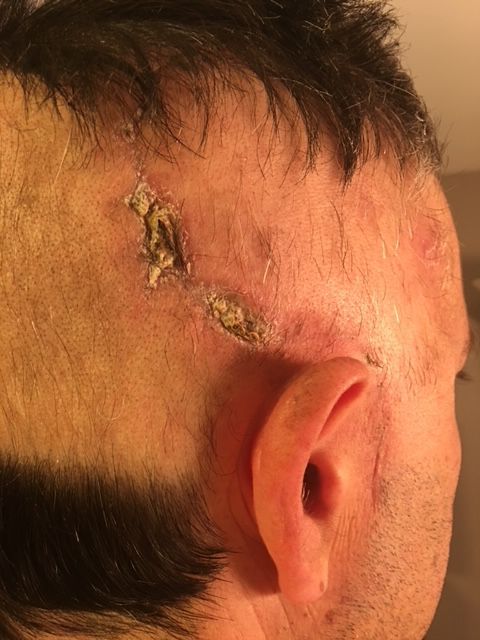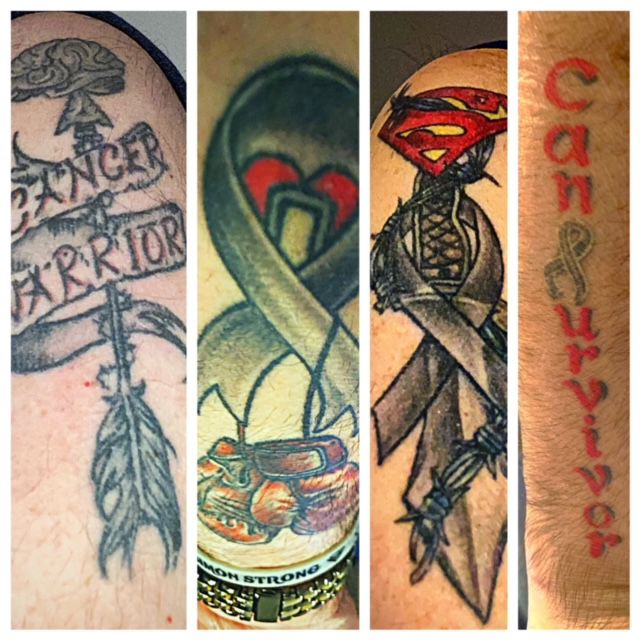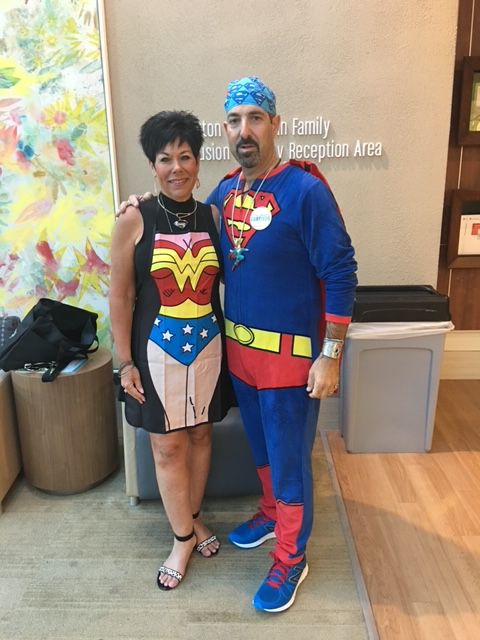OHIO — It’s not a bird or a plane it’s Andy Simon! Or "Superman" as his doctors call him.
“Never once during the past six years did I ever say 'why me' . . . it’s been more like why not me? I can do this," he said.
Simon is a brain cancer survivor.
“Eighty-six cancer and if you’ve been in the food industry or restaurant you know what 86 means, we’re out of it. So out of cancer, that’s my take on it,” he said while cleaning the license plate on his 2007 Pontiac Solstice.

The 57-year-old was diagnosed with glioblastoma multiforme grade 4 more than five and a half years ago.
“Short term is a GBM4. To me, I thought it was a new BMW model," Simon said. "I had never heard of a GBM.”
GBM is one of the deadliest and most aggressive forms of brain cancer. Oftentimes, patients don’t make it past one year. Less than 7% survive five years and for many, the tumor comes back.
But that’s not the case for "Superman."
“Life’s too short to let something like that take you. And it doesn’t have to," he said.
Today, he takes no daily medication and has shown no signs of recurrence since his surgery, radiation and chemotherapy.

Simon refuses to be a statistic.
“I don’t have cancer. I had cancer," he said while pointing to his tattoo that says "Can Survivor."
Simon took part in two clinical trials at University Hospitals. He credits those trials and his team at U.H. with his life.
“If that can help somebody else, that’s well worth it," he said.

But his wife, Amy, is his rock.
“She is definitely my Wonder Woman. She has been by my side the whole time and I don’t think I could have done this without her," Simon said.
“We just fought it," Amy said.
"Together," Simon added.
"Together. We did,” Amy said.
For about 10 years, Simon thought he had migraines. But one November day in 2015, he woke up with a headache and knew something was seriously wrong.
“There’s something different, I think we need to go to the hospital. I got a pretty high tolerance for pain so if I have to say we’re going to the hospital it’s pretty serious," he said.
Everything changed when the doctor said: “I don’t believe you ever suffered from migraines. You have a mass. The tumor was pressing against the skull causing a brain bleed,” Simon recalled.
After the diagnosis, it didn’t take long for his "Superman" persona to take off.
He went back to work less than two weeks after his surgery.
“Go to work first and then I go for chemotherapy and next day, I’d be back again," Simon said. "Didn’t let it stop me.”
Simon is a fighter who has so much to live for.
“Been there for college graduations, multiple. Been there for weddings. Now I’m there for two new grandchildren and hopefully more on the horizon," he said.
He conquered cancer and is cruising through life as his family’s superhero.
“I feel great,” said Simon. "Still got a lot more to do.”
One of the clinical trials Simon was involved in related to his surgery and the other involved increased doses of chemotherapy.
The experimental agent known as “5-ALA” used in Simon’s surgery was rare at the time and is now FDA approved. It helps the surgeon identify the tumor by highlighting the cancer cells in hot pink.
Dr. Andrew Sloan is the director of University Hospitals’ Brain Tumor and Neuro-Oncology Center.
"We put him on our trial which is sort of a novel trial, using hematopoietic stem cells, your own bone marrow stem cells that we've genetically engineered to be resistant to chemotherapy. And the idea here is we can give higher doses of chemo than normal. We start out with a normal dose, and then the same patient we got up to six-fold higher than normal doses by his last treatment and Andy made it through like a champ and is disease-free," Sloan said.
The results from Simon’s gene therapy are promising and phase two of that clinical trial is set to begin soon.
One of the main messages Simon wants others to take away from his story is that brain cancer doesn’t have to be a death sentence. Clinical trials are working toward better treatments and hopefully a cure.
“I’ve been doing this a long time and I can tell you that just because you’re a fighter doesn’t mean you’re going to succeed, but if you’re not a fighter you’re almost guaranteed to fail,” Sloan said.
There are no routine screenings for brain tumors, but most brain tumors are non-cancerous.
Sloan said persistent headaches that get worse over time, seizures, uncontrollable twitches and persistent weakness or numbness are all signs and symptoms to be aware of and bring up to your doctor.



